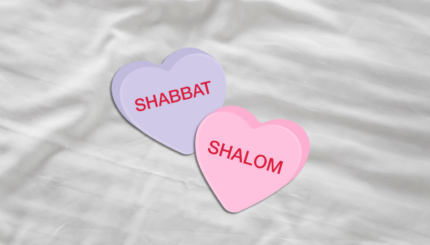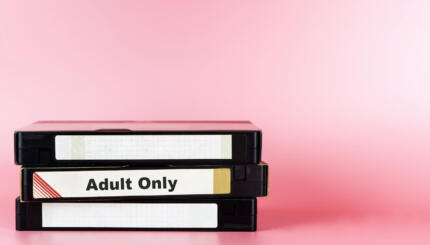My journey of figuring out my sexual orientation began when I was 12 years old and living in a suburb of Chicago. Before my school’s mandatory gym class would begin (where everyone would put on the same awkward-fitting tight blue jersey shorts and baggy grey T-shirts), 50 or so girls would be crammed like sardines into the locker room to change. Standing in the corner of the room, after a minute or so of staring into space, I locked eyes with a girl across the room. She looked around to her friends, as if for guidance, and abruptly pointed and screamed the agonizing word, “lesbian!”
Immediately, I saw an army of girls glaring at me with the most uncomfortable stares I had ever seen before in my life. A few frowned, while others pointed to their mouths, sticking out their tongues to signify that I made them sick. I ran out of the locker room crying, feeling ashamed and completely perplexed by the accusations. If only I could tell that tear-stained pre-teen that the girls’ accusations weren’t completely wrong and that everything would be all right.
Navigating through the conundrum of balancing my sexual orientation, as well as my Jewish background and identity, has been strenuous. Coming from a traditional Jewish household, I have been raised with the customs and teachings of the Jewish faith. I have attended Jewish day camps and Jewish overnight camps, Hebrew school, weekly Shabbat services, Jewish youth group programs, and Friday night dinners with my family for my entire life. Judaism has been a large part of how I have been brought up, and it has been frightening thinking that my religious background and sexual orientation could not fit together.
Thankfully, I have been proven wrong. And of all of the places to discover how I can be a proud member of the LGBTQ+ community while still being a practicing Conservative Jew, my pluralistic Jewish boarding school in North Carolina has been my safe haven and the place where I have been able to find myself. I am forever indebted to the American Hebrew Academy (AHA) for helping me to embrace both of these important identities of mine simultaneously, and I continue to feel like my younger self is finally being given room to breathe.
READ: Conservative Halakha (Jewish Law) and Homosexuality
I initially believed that sharing how I identified as queer with my peers would lead to my being ostracized, similar to how the mere suggestion set me apart from others in junior high. But the AHA community, full of people from all different countries and denominations, accepted and respected me, without questioning my standing as a Jew.
READ: American Hebrew Academy Facing Ambitious Challenges in Bid for Elite Status
This year I am serving as the president of my school’s Gay Straight Alliance (GSA). The group, consisting of understanding, introspective, brave, and altruistic people, has had many discussions about LGBTQ+, gender, and religious issues. We share personal struggles and achievements, support one another, and help to make sure the rest of the campus feels more inclusive for everybody. I can say full-heartedly that my high school experience would not be the same without the support system I have found in the GSA, and I am remarkably thankful for all of the open-minded people who have taught me so much and helped me to appreciate who I am.
Five years ago, my seventh-grade self never could have imagined that I would be living in a community that allows me to unapologetically be myself, no matter how I identify. But more than anything the AHA community has done for me, it has taught me that being queer doesn’t exclude me from practicing Judaism, but rather that I should feel encouraged to find my own connection to the culture.
Like this post?
- Join the conversation through MyJewishLearning’s weekly blogs newsletter.
- Get breaking LGBTQ Jewish news, resources and inspiration from Keshet in your inbox!
- Check out Keshet’s resources for teens.
Shabbat
Pronounced: shuh-BAHT or shah-BAHT, Origin: Hebrew, the Sabbath, from sundown Friday to sundown Saturday.


